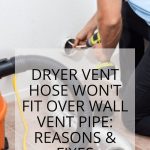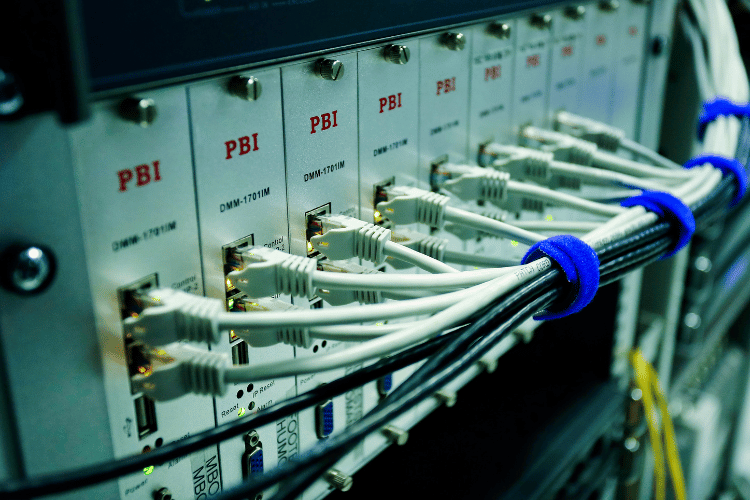Dryer Vent Hose Won’t Fit Over Wall Vent Pipe: Reasons and Fixes
The dryer vent hose connects your clothes dryer to a vent to allow the moisture to escape. As a matter of fact, it’s a key component in the dryer because it allows proper airflow so your laundry will dry. Moreover, there’s a significant fire risk without the vent hose if you try to operate a gas dryer or electric dryer.
Yet, dryer vent hose installation can be challenging if it doesn’t fit over the wall vent dryer exhaust pipe. This can be frustrating because it means that you won’t be able to use your dryer.
If the dryer vent tube doesn’t fit over the wall vent pipe, you’ve come to the right place. This article will explain why this happens and provide easy-to-follow tips to allow you to operate your dryer in no time. So, let’s dive in.
Why Won’t My Dryer Vent Hose FIt Over Wall Vent Pipe?
Connecting the dryer vent hose to the wall vent pipe is crucial to installing your dryer. Before you can use it to dry your laundry, you must ensure the hose and pipe fit.
However, in some cases, they might slip, and no matter how hard you try to fix the problem, they keep slipping. Attempting to operate your dryer without securing the semi-rigid vent hose to the wall vent means it won’t work correctly. There can also be a fire hazard.
Before fixing a slippery dryer vent hose, you should understand its fitting mechanism. There are 2 opposite sides. The vent is the male connector, while the wall duct is the female connector. You should have male and female connectors of the same size for your vent hose to fit.
You should make sure that the dryer hose and the wall vent are of suitable sizes. In general this semi-rigid metal pipe will have an internal diameter of 4 inches to slide into a duct with an external diameter of 4 inches or less.
However, if the external diameter and internal diameter are equal, the hose’s internal diameter will be too big to serve as the female conductor. In this case, it will slip no matter how many times you try to install it.
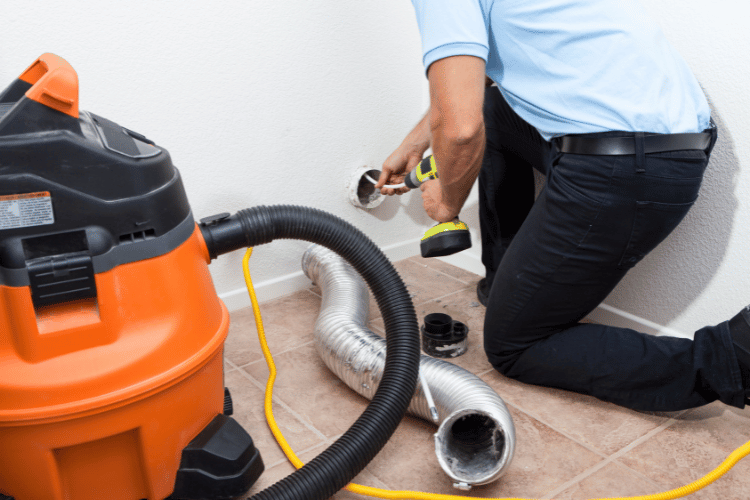
You might also have an old or faulty metal ring around the vent hose. The ring can become loose with time, preventing the hose from fitting right into the vent pipe. Lint buildup can also be an issue as it prevents the hose from fitting into the wall vent pipe.
Finally, having pleats and ridges along the ends shouldn’t be a problem if your hose comes with connectors. Yet, this isn’t always the case.
In most cases, you’ll have a hose that lacks these connectors or couplers. With two open ends, it will be challenging to make the vent hose fit right.
How To Make Dryer Vent Hose Fit Over Wall Vent Pipe
To overcome the slipping problem, you should first identify the main issue that prevents the hose from fitting tightly.
Clean And Examine The Hose
Before attempting to do any modifications to the hose or the vent pipe, you should clean any lint buildup in the exhaust tubes using a vacuum cleaner. The lint might affect how the hose fits as it covers the connectors. You should also remove any stuck buildup that prevents the hose from expelling moisture to dry your laundry.
After that, you should examine the metal ring. It’s normal for this ring to become loose due to wear and tear. But using a proper metal clamp ring will solve the problem.
Hose clamps are mainly made of stainless steel and will hold the semi-rigid dryer vent hose in place and allow it to fit right into the vent. This way, your dryer can work properly, and the hose won’t slip from the dryer vent duct.
Flatten the Ridges
You don’t need any special tools to flatten the ridges on your vent hose. Yet, this minor modification can fix the problem and help secure the hose in place.
You can use a PVC roller or pipe to flatten and remove some of the ridges on the hose. You don’t have to flatten the whole thing, as only two or three inches will be enough. Once you have flattened one end, the hose should slide right into the vent with no issues.
If the hose isn’t pliable enough, one trick is to make a few cuts on the hose’s end. This will add flexibility and allow you to slide it into the duct. Then you should add your metal clamp and seal it with aluminum foil tape.
Install a Coupler
Installing a coupler can help keep the hose in place if it constantly fails to fit. It has male and female ports, where the male port connects to the hose while the female port connects to the vent.
This solution will work for you if your hose doesn’t come with a female port, as you can install this extension piece to connect your hose to the wall vent pipe, which is a male tube.
Install an Elbow
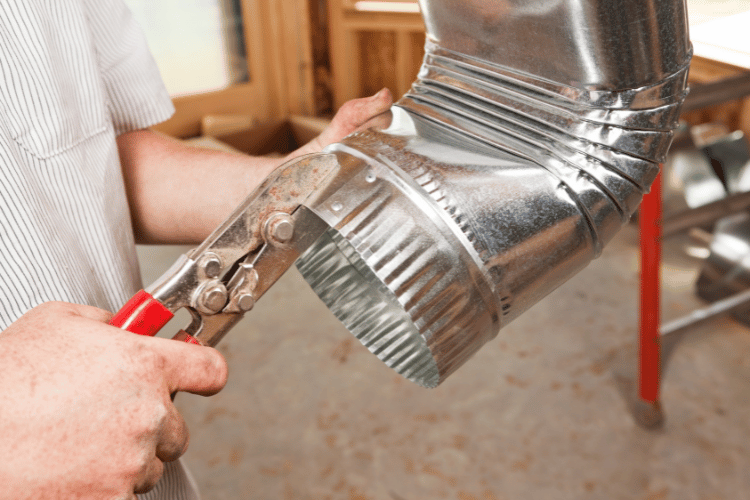
The hose might have a structural problem that prevents it from fitting into the wall vent. In this case, installing an elbow will be a good solution.
A dryer vent elbow can bend at different angles to allow the hose to connect to the vent. This elbow should have a male port to connect to the hose and a female port to connect to the wall vent pipe.
Shop any of these stores and I receive a small commission at no cost to you.
 BLACK+DECKER 1.5 Cu. Ft. Co...Shop on Amazon
BLACK+DECKER 1.5 Cu. Ft. Co...Shop on Amazon ROVSUN 110V Portable Clothe...Shop on Amazon
ROVSUN 110V Portable Clothe...Shop on Amazon Honey-Can-Do Collapsible Cl...Shop on Amazon
Honey-Can-Do Collapsible Cl...Shop on Amazon Cenipar Dryer Vent Hose-4 i...Shop on Amazon
Cenipar Dryer Vent Hose-4 i...Shop on Amazon
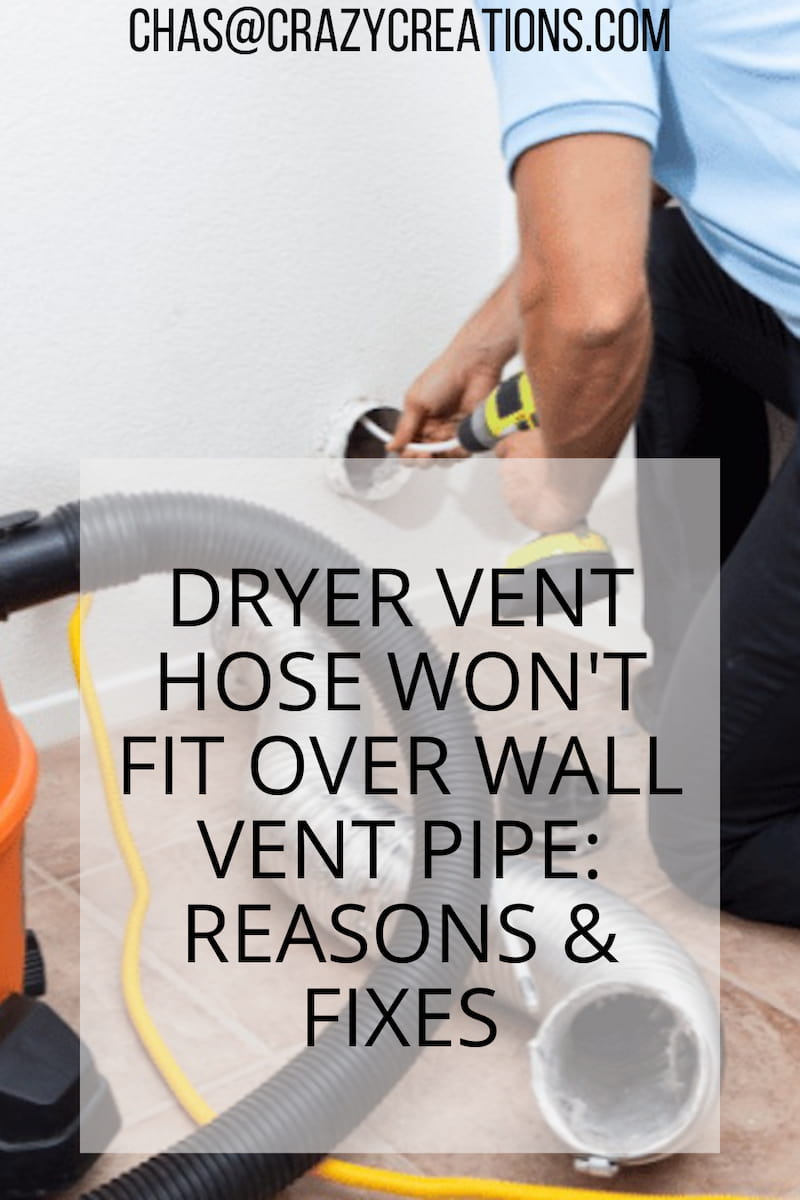
Related Posts
- How To Deep Clean A Washer and Dryer Quickly and Easily
- Amazing DIY Laundry Hacks That Will Save You Money
- Easy and Inexpensive Small Laundry Room Hacks with Video
- Laundry Room Update: Easy Updates on a Budget with Video
- Best Laundry Room Essentials You Can’t Live Without
Wrap Up
Without a properly installed dryer vent hose, your dryer won’t work. It can also be a fire hazard if used without fitting into the wall vent.
The hose might not fit into the wall vent pipe because the hose’s internal diameter and the pipe’s external diameter don’t match. The ridges along the end of the hose can also cause the problem. Lint buildup, a clogged vent or the lack of a female port might also make the hose slip, no matter how many times you install it.
Clean the hose of any buildup if it doesn’t stay in place. You can flatten the ridges to help the hose fit better. If it doesn’t work, you should add hose clamps to secure it in place. A coupler might be needed as it comes with female and male ports to connect the hose to the wall pipe.


